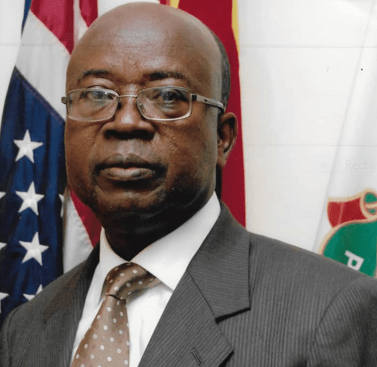By Kinsley LARBI( Rev. Prof.)
In Ghana’s rapidly evolving economy, leaders are often celebrated for their achievements, rising GDP, increasing foreign investments, and successful entrepreneurial ventures.
However, beneath this veneer of success lies a profound sense of emptiness and disconnection from purpose among many of these leaders.
This phenomenon echoes the lament of an elderly man who, despite his material wealth, questions the meaning of his life. He represents a growing concern in Ghana’s employment ecosystem, where individuals, despite achieving success, find themselves struggling with feelings of unfulfillment and existential dread.
This feature was motivated by Chapter 18 of the Book Born to Win, by the Author of this feature.
The Paradox of Success
According to the Ghana Statistical Service, the country’s GDP grew by approximately 6.5% in 2022, fueled by robust agricultural and service sectors. Yet, as the economy thrives, many Ghanaians report feelings of dissatisfaction.
A 2023 survey by the Centre for Social Policy Studies indicated that nearly 65% of Ghanaian professionals feel they are not living up to their potential, citing pressure to conform to societal expectations and a lack of personal purpose.
The elderly man’s story serves as a microcosm of this broader societal issue. Despite his impressive achievements, financial stability, a thriving family, and a respected reputation, he questions, “What was it for? Is this all there is?” This sentiment is echoed by many professionals who grapple with the tension between societal success and personal fulfillment.
The God Factor: Spiritual Fulfillment in Leadership
Saint Augustine’s famous assertion, “You made us for yourself, and our hearts find no peace until they rest in you,” resonates deeply in the context of Ghanaian society, where spirituality plays a significant role in everyday life.
A 2022 Pew Research study found that 81% of Ghanaians identify as Christians, and faith often shapes their understanding of purpose.
In leadership, the integration of spirituality and purpose is vital. Many successful leaders, including the late Kofi Annan, former Secretary-General of the United Nations, emphasized the importance of purpose-driven leadership.
Annan often spoke about the need for leaders to be guided by a moral compass and a commitment to the greater good, which aligns with the notion of finding peace through a relationship with God.
The Role of Purpose in Motivation
Dr. Myles Munroe’s insights on the importance of purpose are particularly relevant in Ghana, where many leaders find motivation in the call to serve their communities. In 2023, the Ghana Business Chamber reported that 58% of entrepreneurs identified social impact as a primary motivation for their businesses. However, this sense of purpose often gets lost amid the hustle for financial success.
For example, during the COVID-19 pandemic, Ghanaian entrepreneurs faced significant challenges. A report from the Ghana National Chamber of Commerce and Industry revealed that 70% of businesses experienced a decline in revenue. Yet, many leaders pivoted their operations to provide essential services, showing that purpose can drive resilience even in tough times. The stories of these leaders illustrate that fulfillment stems not just from financial success but from contributing to the well-being of society.
Training and Skills Development: Fulfilling Purpose
As the search for meaning continues, the importance of training and skill acquisition cannot be overstated. Ghana’s education system has made strides, with a literacy rate of approximately 79% as of 2021. However, a 2022 report by the World Bank highlighted a significant skills gap in the workforce, with only 38% of graduates possessing the skills demanded by employers.
To address this gap, various organizations are focusing on equipping individuals with the necessary skills to meet workforce demands. For instance, the Youth Employment Agency launched a program in 2023 aimed at providing vocational training to over 100,000 young people, promoting entrepreneurship and self-employment.
By prioritizing training and skill development, Ghana can help individuals discover their unique purposes, ultimately leading to a more motivated and fulfilled workforce.
Conclusion
As Ghana continues to progress, leaders need to redefine what success means. The narrative of the elderly man who achieved everything yet felt empty serves as a poignant reminder that material wealth does not equate to fulfillment.
Leaders must embrace the “God factor” and explore the deeper meanings of their existence, aligning their professional pursuits with their values and beliefs. By fostering a culture that values purpose alongside success, Ghana can empower its leaders to not only thrive economically but also contribute meaningfully to the lives of others, ultimately creating a more fulfilled and engaged society.










